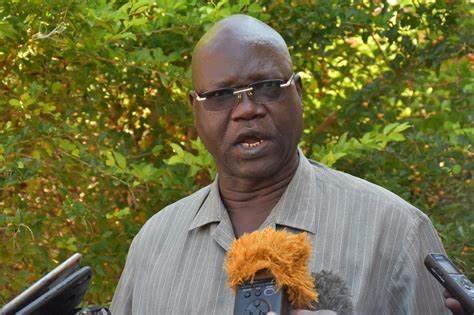By Jennifer James
The Chairperson of the National Chamber of Commerce, Losidik Lukak Legge, this week urged citizens to embrace agriculture as a critical means of combating the country’s economic hardships. His call to action came during the reactivation of the Specialized Committee for the Chamber on a Wednesday that many will remember as pivotal for South Sudan’s economic dialogue.
In a press conference, Losidik emphasized the urgent need for traders to pivot towards agriculture, especially given the looming depletion of petrol reserves. “As traders in the country, we must venture into agriculture as the only viable solution to address the current economic situation,” he asserted passionately.
He underscored that embracing agricultural practices could significantly reduce the nation’s reliance on imported food, ultimately boosting the local economy.
Losidik pointed to examples from other nations that have successfully leveraged agriculture to improve their economic standings.
“We have witnessed the transformative power of agriculture elsewhere; why not in South Sudan? Agriculture can be a cornerstone for economic stability and growth in our nation,” he declared, rallying support from various stakeholders.
However, this vision faces significant hurdles. David Kulang, the director of agriculture within the specialized committee, outlined the severe challenges confronting farmers, notably the pervasive issue of insecurity.
“Insecurity remains the primary obstacle for our farmers, deterring them from cultivating their land,” Kulang lamented. He called on the government to prioritize security measures, which are essential for fostering a conducive environment for agricultural production.
The dialogue concluded with a sense of urgency and hope. Both Losidik and Kulang recognized that while the road ahead is fraught with challenges, the potential for agriculture to revitalize South Sudan’s economy is immense.
With collective effort and governmental support, they believe that the nation can not only feed itself but also establish a robust agricultural sector capable of propelling economic growth.
As citizens consider their roles, the message is clear: agriculture is not just a means of survival but a pathway to prosperity.



